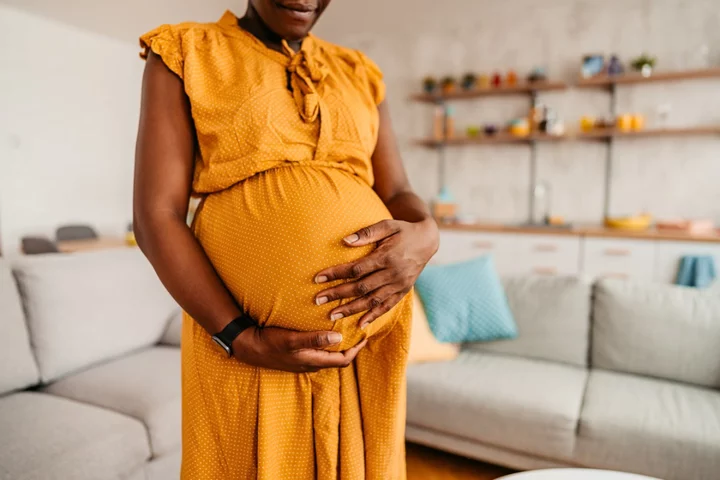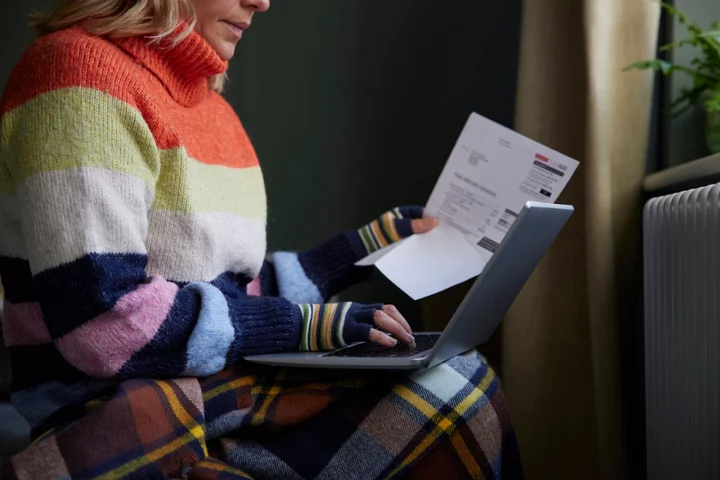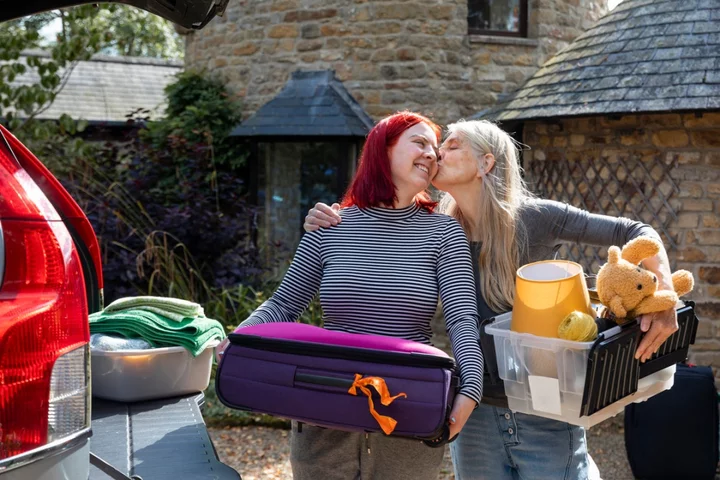
AC Milan 0-0 Newcastle: Player ratings as Magpies hold on for draw at San Siro
Match report and player ratings from AC Milan's Champions League meeting with Newcastle United.
1970-01-01 08:00

Harry Kane's goal record vs Man Utd
Harry Kane's complete head-to-head record against Manchester United during his time at Tottenham and Bayern Munich, including how many goals he has scored against the Premier League giants
1970-01-01 08:00

Gisele Bündchen opens up about ‘tough’ family times nearly one year after Tom Brady divorce
Gisele Bundchen has reflected on the “tough” times her family has experienced since finalising her divorce from ex-husband Tom Brady. The supermodel, 43, recently opened up to People about the many challenges she and her family have faced in the past year. “It’s been very tough on my family. It’s been a lot - in every area of my life,” she said in the interview published 18 September. Within the last 12 months, Bündchen has navigated co-parenting her two children - son Benjamin, 13, and daughter Vivian, 10, - with ex-husband, retired football star Tom Brady. Before their divorce, which was finalised in October 2022, she relocated her family to Florida for Brady’s three-season stint with the Tampa Bay Buccaneers. While the Victoria’s Secret model has now settled down in Miami, she was reportedly helping her two ailing parents at the same time. “I feel like whenever it rains, it pours,” Bündchen told the outlet. “With all the different twists and turns that life takes, all we can do is the best we can given what happens in our surroundings.” Since moving on from her 13-year marriage with Brady, Bündchen explained that she’s relied on meditation and daily exercise to help her through difficult times. “I work out every single day,” she said, noting how her workout routine includes a mix of walking, yoga, and lifting weights. “I think if I didn’t have all the different tools that I have to support me during these times, it would’ve been very hard,” she added. “And I think we all can relate to that, because I think we all have gone through our roller coasters of life.” The Brazilian model also decided to stop drinking alcohol, and revealed how it’s positively affected her one year later. “Right after I turned 40, actually, I felt a huge difference between when I had the glass of wine and when I didn’t have the glass of wine,” Bündchen said. After cutting alcohol from her diet, she recalled seeing a difference “immediately”. “I became more clear,” she explained. “I felt a bit more foggy before. Now I’m very sharp and very present and I notice things that I didn’t notice before. When I’m not drinking, I’m sleeping much better. You have to be loving to yourself. You ask a lot of your body, you’ve got to do a reset. You have got to take care of this only vehicle you got, right?” Last year, Bündchen and Brady announced they were divorcing after 13 years of marriage. In a social media post shared on 28 October 2022, the former couple revealed they had finalised their divorce, just weeks after it was reported that they had each hired divorce lawyers. “In recent days, my wife and I finalised our divorce from one another after 13 years of marriage. We arrived at this decision amicably and with gratitude for the time we spent together,” Brady wrote in a statement shared to Instagram. “We are blessed with beautiful and wonderful children who will continue to be the centre of our world in every day. We will continue to work together as parents to always ensure they receive the love and attention they deserve.” According to People, the couple agreed on joint custody of their children. In addition to their children Benjamin and Vivian, Brady also shares son John, 16, with ex Bridget Moynahan. In the post, the football quarterback said that he and Bündchen arrived at the decision to end their marriage “after much consideration”. “Doing so is, of course, painful and difficult, like it is for many people who go through the same thing every day around the world,” he continued. “However, we wish only the best for each other as we pursue whatever new chapters in our lives that are yet to be written.” Bündchen also shared the news in a statement of her own, which she shared to Instagram. “With much gratitude for our time together, Tom and I have amicably finalised our divorce. My priority has always been and will continue to be our children whom I love with all my heart,” she wrote. “We will continue co-parenting to give them the love, care and attention they greatly deserve.” In her statement, the supermodel acknowledged that the decision to end a marriage is “never easy,” but that she and Brady have “grown apart”. “And while it is, of course, difficult to go through something like this, I feel blessed for the time we had together and only wish the best for Tom always,” she continued. “I kindly ask that our privacy be respected during this sensitive time.” Their divorce announcement came amid speculation that Brady’s decision to unretire from the NFL in March 2022, after he previously announced his retirement in February that same year, had put a strain on their relationship. Bündchen further fuelled speculation that her husband’s career may have contributed to their marital struggles when she explained in an interview with Elle that she believes she’s done her “part” supporting her husband and their family. “I’ve done my part, which is [to] be there for [Tom]. I moved to Boston, and I focused on creating a cocoon and a loving environment for my children to grow up in and to be there supporting him and his dreams,” she said in the interview published one month before their separation. “Seeing my children succeed and become the beautiful little humans that they are, seeing him succeed, and being fulfilled in his career - it makes me happy. “At this point in my life, I feel like I’ve done a good job on that,” Bündchen added, before noting that she feels like it is now her “turn” to focus on her career. “And now it’s going to be my turn. It’s not like I’m going to be in the valley forever.” Since then, the mother of two has revealed how she and Brady have navigated co-parenting their children following their divorce. “We’re not playing against each other,” Bündchen told Vanity Fair last March. “We are a team, and that’s beautiful. I look back and I have no regrets. I loved every bit of it.” Read More Gisele Bündchen reveals why she hasn’t had alcohol in two years Tom Brady pays tribute to exes Gisele Bündchen and Bridget Moynahan on Mothers’ Day Tom Brady and Gisele Bundchen plan to ‘keep things drama-free for the kids’ following divorce Placenta abnormalities could be the reason for miscarriages, study suggests Nearly a fifth of parents fear children will ignore health issues while at university Brits feel their mental health declining due to cost of living crisis
1970-01-01 08:00

Placenta abnormalities could be the reason for miscarriages, study suggests
A new study has found that placenta abnormalities could be the reason for miscarriages. In the United States, there are approximately 5 million pregnancies per year with 1 million ending in a miscarriage and over 20,000 ending in stillbirth, according to a paper published in the journal Reproductive Sciences. “To have a pregnancy loss is a tragedy. To be told there is no explanation adds tremendous pain for these loss families,” said senior author of the paper and research scientist at Yale School of Medicine, Dr Harvey Kliman “Our goal was to expand the current classification systems to decrease the number of cases that remained unspecified.” For the study, researchers worked to create a classification system for miscarriages based on a test that examines a sample of the body’s tissues – known as pathologic examination. The team looked at a series of 1,527 single-child pregnancies that ended in miscarriage, and the data was then sent to Yale for evaluation. After excluding cases without adequate material for examination, 1,256 placentas from 922 patients were examined. Of these, 70 per cent were miscarriages and 30 per cent were stillbirths. By adding the explicit categories of “placenta with abnormal development” (dysmorphic placentas) and “small placenta” (a placenta less than the 10th percentile for gestational age) to other incidents such as cord accident, abruption, thrombotic, and infection – researchers were able to determine the results of 91.6 per cent of the pregnancies, including 88.5 per cent of the miscarriages and 98.7 per cent of the stillbirths. The most common results for unexplained miscarriages were dysmorphic placentas (placenta with abnormal development) which was around 86.2 per cent. For stillbirths, there was 33.9 per cent due to a small placenta. “This work suggests that the over 7,000 small placentas per year associated with stillbirths could have been detected in utero — flagging those pregnancies as high risk prior to the loss,” said Dr Kliman. “Likewise, the identification of dysmorphic placentas may be one way to potentially identify genetic abnormalities in the almost 1 million miscarriages that occur in our country every year.” He said having a definite explanation “for a pregnancy loss helps the family understand that their loss was not their fault, allows them to start the healing process, and, when possible, prevent similar losses — especially stillbirths — from occurring in the future.” When asked what the most effective way might be to prevent stillbirths, Dr Kliman responded, “Measure the placenta!” Read More 'Please, keep beating little heart': Man gives raw account of wife's miscarriage and fears for new unborn child Woman who had six miscarriages celebrates pregnancy with rainbow baby photoshoot Miscarriage: The loneliest grief of all Nearly a fifth of parents fear children will ignore health issues while at university Brits feel their mental health declining due to cost of living crisis How often should you wash your pyjamas?
1970-01-01 08:00

Arsenal vs PSV Eindhoven: Complete H2H record
The complete head-to-head record between Arsenal and PSV Eindhoven, including the most memorable games in the Champions League and Europa League as well as the top scorer in this fixture.
1970-01-01 08:00

Brits struggle with mental health due to cost of living crisis
People in Edinburgh, Leicester and Glasgow are struggling the most with their mental health - due to the cost of living crisis. A poll of 2,000 adults found 27 per cent have really taken a hit when it comes to their wellbeing, because of a lack of finances. Newcastle, London and Leeds are other key cities where people are most affected. Cutting down on socialising, gym memberships and nutritious food to save money are reasons why so many feel disheartened and worried about their mental wellbeing. And 40 per cent are dreading the winter as they are unsure if they will be able to afford energy bills to heat their home. The survey was commissioned by British Gas, which is working with Professor Green to raise awareness of the struggles so many are facing and highlight the free support available in the new phase of the British Gas Post Office Pop-Ups. The musician and mental health advocate said: “As a parent your first instinct is to protect and provide, and when you’re doing everything you can, and that’s still not enough, it has a profound impact on your mental health. “Shame, stigma and fear can keep people from speaking up for help, but it’s the best thing you can do – for yourself, your family and your community. “Stress and anxiety breed in uncertainty so I really encourage you to visit a British Gas Post Office Pop-Up or contact the British Gas Energy Trust to help you gain confidence in, and control of, your future.“ The research found 14 per cent of adults are cutting back on how often they shower to lower their bills, and 21 per cent aren’t buying birthday gifts for loved ones. One in 20 (five per cent) say their kids are missing out on new toys. Just over half (55 per cent) believe their mental health would definitely improve if they were more financially stable. People in Manchester were found to be most likely to skip using heat or electricity to keep their homes warm. But those in Edinburgh were most likely to report that they have had issues with money that have led to incurring additional debt, like credit cards. Only 27 per cent of all adults polled via OnePoll are confident they are accessing all the benefits they may be entitled to when it comes to support with their energy bills. One in 10 also believe the rising cost of energy has caused them a great deal of additional stress. And 25 per cent baldly state they are expecting to struggle to pay their energy bills through the rest of the year. Nearly the same amount (24 per cent) said the current cost of living crisis has been just as bad for their mental health as the Covid-19 pandemic. British Gas Energy Trust CEO Jessica Taplin said: “Debt and money stresses are debilitating, which is why we are delighted to be offering money and energy advisors funded by us in Post Offices across the country. “Working with an artist like Professor Green can really help raise awareness, and let people know it’s good to talk about the things that are worrying them.” Read More Voguewashing London Fashion Week won’t pay the wages of Britain’s young fashion designers What is happening to local government finances and why are councils struggling? ‘School staff seeing more students who do not have enough dinner money’ Nearly a fifth of parents fear children will ignore health issues while at university How often should you wash your pyjamas? ‘My baby’s blue eyes drew praise – but their colour was a warning sign’
1970-01-01 08:00

Nearly a fifth of parents fear children will ignore health issues while at university
Nearly a fifth of parents fear their teenager will ignore a health issue while at university, as many self-diagnose on Google, research has found. Just 13 per cent of the 2,000 parents polled think their son or daughter would consult a proper doctor as soon as they feel unwell. More than one in 10 (12 per cent) think their offspring would be too lazy to seek medical attention, and 11 per cent fear they do not make their health a priority. The study of parents whose children either attend university, have done in the past or plan to soon, by Bupa Family+, also found that many (53 per cent) said their child thinks they are ‘invincible’ and nothing bad will ever happen to them. And as thousands of students prepare to start university, 56 per cent of parents feel excited for their child while 41 per cent are anxious. Dr Naveen Puri, GP and spokesperson for Bupa Family+, which commissioned the research to support the launch of its Family+ insurance proposition built around savings on health insurance for families, said: “All parents worry about their children, whatever their age. “But it can be especially difficult when they move out for the first time and become more independent – and you are no longer nearby to help them. “As a child and even a young adult, when you are unwell or have a health issue, your parents are often your first port of call, or even the ones spotting something is wrong in the first place. “They are usually the ones pointing you in the right direction, sorting appointments and arranging medication you might need. “Moving out or going to university is both an exciting and daunting time for all the family and we hope our new Family+ cover, which also insures older children, will help provide peace of mind to parents and their children alike.” It also emerged that parents’ top fears for their children as they embark on life away from the family home include their financial situation (44 per cent), their mental health (43 per cent), and whether they will be lonely (43 per cent). Others worry about who they will be spending time with (31 per cent), if they’ll know how to look after themselves (32 per cent) and what they’ll do when they feel unwell (23 per cent). And 64 per cent of those who have a child who has already left home admitted they have even lost sleep worrying about them. It emerged that 55 per cent think they would still be the first port of call for help or advice if their child felt unwell despite no longer living under the same roof. Ahead of them moving out, 63 per cent of parents will teach them how to manage their finances, while 59 per cent give tips on how to cook healthy meals. Others show their child how to use a washing machine (56 per cent), how to drink responsibly (40 per cent) and how to deal with mental health concerns (43 per cent). The study, carried out via OnePoll, also revealed girls are considered more likely to take care of their physical (43 per cent) and mental (41 per cent) health than boys (13 per cent and 11 per cent). Dr Naveen Puri, GP and spokesperson for Bupa Family+ said: “Our health is so important, and it can be worrying for parents that their child may be unwell when they aren’t there to help. “Making sure they have the knowledge about what to do in different health situations is a great way of not only ensuring they can look after themselves but also allows you to relax a little knowing they have the tools they need.” Here are the top reasons why parents worry their child would ignore health issues: 1. Googling and self-diagnosing 2. Being too lazy 3. Health is not a priority 4. Embarrassed to talk about their health 5. Worried a GP would judge them Read More ‘It can be hard when your kids leave the nest,’ mother says as study finds parents want their children back How to cope with anxiety during university How often should you wash your pyjamas? ‘My baby’s blue eyes drew praise – but their colour was a warning sign’ Brits get itchy feet in their home after five years, study finds
1970-01-01 08:00

Some New Hampshire voters highlight disillusion with national politics as they weigh who to vote for in 2024 primaries
First mate Andrew Konchek uses a dockside crane to lower the last giant chest of ice onto the stern of the Alanna Renee. Moments later, the fishing boat eases off the dock and heads out of Portsmouth Harbor in the moonlight.
1970-01-01 08:00

How often should you wash your pyjamas?
We all have our favourite pair of PJs we come back to – time after time. Some of us may even have special pyjamas for lounging around in and feeling comfy when snuggled up with Netflix on the sofa. But because they’re only worn inside the house and for sleeping (well, most of the time), the rules can seem different when it comes to PJ maintenance. So, how often should we be washing them and switching to a clean pair? Do you need to wash your pyjamas daily? “You might be surprised to know the answer is no!” says cleaning and laundry expert Laura Mountford, author of Live, Laugh, Laundry. “Like all of our clothing, many of us may be guilty of washing our pyjamas too frequently, or perhaps not enough. But in reality, pyjamas should be washed after every two or three wears. Washing them after every wear, unless they are actually stained, smelly or sweaty, is unnecessary – a waste of money, water and energy,” Mountford adds. She suggests pyjamas can be left to air between wears, and this should be sufficient for them to freshen up ready for the next night – so putting them under your pillow probably isn’t the best idea. Should you wash them more in the summer? “I wash my pyjamas more in the summer when the nights are hot,” says Mountford, “as sweat can cause bacteria growth, which will make them smell. And nobody wants to snuggle into bed in sweaty pyjamas, do they?” What’s the most hygienic way to wash your pyjamas? Sophie Lane, product training manager at Miele GB, says: “Wash pyjamas at the highest temperature the fabric can cope with – check the garment care label. This will deliver the most hygienic clean. Detergent is also important to achieving good results.” Are different materials more or less hygienic? Natural fabrics like cotton are the most hygienic, suggests Mountford, as they are breathable, so bacteria and sweat builds up less quickly compared to manmade fabrics like polyester. Lane agrees, adding: “Cotton is also extremely durable and can withstand high temperature washes. Bamboo is another good fabric option for pyjamas. It’s very breathable whilst being effective at thermal regulating, to keep you warm in the winter and cool in the summer. It’s also anti-bacterial, hypo-allergenic and odour-resistant.” What happens if you don’t wash pyjamas regularly? Mountford says: “Most of us wear our pyjamas for eight hours each night, so not washing them frequently enough can cause bacteria to grow, making them smelly and unhygienic… not very cosy at all. This may reduce the quality of your sleep,” she adds – noting it could result in “skin irritation” too. Does it make a difference if you shower before bed or in the morning? “Showering before bed keeps your pyjamas and bedding fresher for longer, as you are jumping into bed with a clean body, having already removed the dirt, bacteria and allergens from the day,” says Mountford. “Not showering before bed will cause these particles to be transferred onto your nightwear and bedding, which will cause them to get dirty and smelly more quickly.” Read More Charity boss speaks out over ‘traumatic’ encounter with royal aide Ukraine war’s heaviest fight rages in east - follow live Beginner’s guide to buying second-hand furniture These are the best shorter daffodils to plant now for spring – according to RHS trials Do I need to treat my garden furniture before storing it for winter?
1970-01-01 08:00

Champions League fixtures today - your guide to Tuesday's games
Your guide to Tuesday's Champions League fixtures, including AC Milan vs Newcastle, and how to follow them on TV and live stream.
1970-01-01 08:00

Marilyn Manson fined for blowing nose on concert photographer
The singer will perform 20 hours of community service and pay $1,400 in fines for the "egregious" act.
1970-01-01 08:00

Champions League predictions: Group stage matchday 1
Predictions for the first matchday of the 2023/24 Champions League group stage.
1970-01-01 08:00
